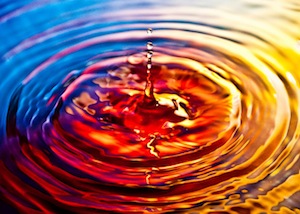DENMARK. Eco-friendly and sustainable lifestyle can be manifested in various ways. In Denmark, there are many people who are actively engaged in performing and choosing healthy solutions. Some of them are trying to improve the environment through the development of new and more sustainable patterns of living or urban and industrial planning. One way to do it is a drift to obtain the best quality of water.
Taking into consideration the fact that it is neither filtered nor contains substances like chlorine added to it, the taste may change depending on where in the country you are. Thus, the water in the capital city of Copenhagen, for instance, tastes quite different to the water from the west coast.
For several years, the water utilities in Denmark have started competing over the best water. In fact, there is a Grand Prix to prove it: the Danish Water Grand Prix, a contest held by DANVA – National Association of Water and Wastewater Utilities and FVD (Association of Waterworks in Denmark), where professional wine tasters choose the best water.
Nearly 60 water companies from all over Denmark take part in the competition every two years. The focus of the contest lies in maintaining the natural and tasty water that comes out of the taps. It also serves to remind everybody that the clean water is not always something that is obvious and should not be taken for granted.
From April to May, there is an open sign-up period for the Danish Water Grand Prix 2014. The water utilities that might be willing to participate can see it as an opportunity to advertise their product and have an informal, technical talk with others in the water industry as well as with the key stakeholder: the customer. Furthermore, the Danes who will join the event will be provided with serious information on the Danish drinking water, water tasting and other entertainments.
While other European countries obtain much of the drinking water from lakes and rivers, Danish drinking water, quite uniquely, comes entirely from groundwater. What is more, it is generally very clean and of high quality. The Water Grand Prix contest has also been launched with its focal point on this aspect. Salt and iron content, hardness or softness, oxidation and temperature are the factors which decides on the taste.
Together with the sponsored award of 50,000 kr for the winner, there is supported an initiative in the village of Kambi ya Faru in Karatu district in Northern Tanzania. The project, among others, helps creating rainwater collection systems in the village and provides school children teaching of how to maintain good hygiene. In this way gained knowledge about hygiene becomes disseminated to others in homes and village. In many countries, the lack of clean water, sanitation and hygiene are the primary cause to various diseases and deaths – especially among children. What is more, it is estimated that about 900 million of people are still living with poor access to clean drinking water.
– Klaudia Tobiasz

